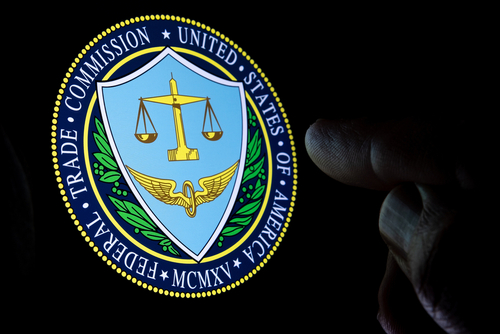Showing results for: “Michael Vita”
Taking Cost-Benefit Analysis Seriously in Consumer-Data Regulation
In its Advance Notice for Proposed Rulemaking (ANPR) on Commercial Surveillance and Data Security, the Federal Trade Commission (FTC) has requested public comment on an unprecedented initiative to promulgate and implement wide-ranging rules concerning the gathering and use of consumer data in digital markets. In this contribution, I will assume, for the sake of argument, ... Taking Cost-Benefit Analysis Seriously in Consumer-Data Regulation
Patent Eligibility, Competition, Innovation, Congress, and the Supreme Court
A highly competitive economy is characterized by strong, legally respected property rights. A failure to afford legal protection to certain types of property will reduce individual incentives to participate in market transactions, thereby reducing the effectiveness of market competition. As the great economist Armen Alchian put it, “[w]ell-defined and well-protected property rights replace competition by ... Patent Eligibility, Competition, Innovation, Congress, and the Supreme Court
DMA Update: It’s Still a Privacy Danger
The European Union’s Digital Markets Act (DMA) has been finalized in principle, although some legislative details are still being negotiated. Alas, our earlier worries about user privacy still have not been addressed adequately. The key rules to examine are the DMA’s interoperability mandates. The most recent DMA text introduced a potentially very risky new kind ... DMA Update: It’s Still a Privacy Danger
How Tech Startups Could Be a Casualty of the War on Self-Preferencing
We will learn more in the coming weeks about the fate of the proposed American Innovation and Choice Online Act (AICOA), legislation sponsored by Sens. Amy Klobuchar (D-Minn.) and Chuck Grassley (R-Iowa) that would, among other things, prohibit “self-preferencing” by large digital platforms like Google, Amazon, Facebook, Apple, and Microsoft. But while the bill has ... How Tech Startups Could Be a Casualty of the War on Self-Preferencing
Hunting for Labor-Market Monopsonies (and Giffen Goods)
If you wander into an undergraduate economics class on the right day at the right time, you might catch the lecturer talking about Giffen goods: the rare case where demand curves can slope upward. The Irish potato famine is often used as an example. As the story goes, potatoes were a huge part of the ... Hunting for Labor-Market Monopsonies (and Giffen Goods)
Chevron and Administrative Antitrust, Redux
[Wrapping up the first week of our FTC UMC Rulemaking symposium is a post from Truth on the Market’s own Justin (Gus) Hurwitz, director of law & economics programs at the International Center for Law & Economics and an assistant professor of law and co-director of the Space, Cyber, and Telecom Law program at the ... Chevron and Administrative Antitrust, Redux
The Major Questions Doctrine Slams the Door Shut on UMC Rulemaking
The Federal Trade Commission’s (FTC) current leadership appears likely to issue substantive rules concerning “unfair methods of competition” (UMC) at some point. FTC Chair Lina Khan, in an article with former FTC Commissioner Rohit Chopra, argued that the commission has the authority to issue UMC rules pursuant to the Federal Trade Commission Act based on ... The Major Questions Doctrine Slams the Door Shut on UMC Rulemaking
UMC Rulemaking After Magnuson-Moss: A Textualist Approach
Introduction The Federal Trade Commission’s (FTC) ability to conduct substantive rulemaking under both its “unfair methods of competition” (UMC) and “unfair and deceptive practices” (UDAP) mandates was upheld by the U.S. Court of Appeals for the D.C. Circuit in 1973’s National Petroleum Refiners Association v. FTC. Nonetheless, the FTC has seldom exercised this authority with ... UMC Rulemaking After Magnuson-Moss: A Textualist Approach
Application of the Proper ‘Outer Boundary’ of Antitrust Liability for Alleged Refusals to Deal in New York v Facebook
Introduction The States brought an antitrust complaint against Facebook alleging that various conduct violated Section 2 of the Sherman Act. The ICLE brief addresses the States’ allegations that Facebook refused to provide access to an input, a set of application-programming interfaces that developers use in order to access Facebook’s network of social-media users (Facebook’s Platform), ... Application of the Proper ‘Outer Boundary’ of Antitrust Liability for Alleged Refusals to Deal in New York v Facebook
Lina Khan’s Privacy Proposals Are at Odds with Market Principles and Consumer Welfare
The Federal Trade Commission (FTC) is at it again, threatening new sorts of regulatory interventions in the legitimate welfare-enhancing activities of businesses—this time in the realm of data collection by firms. Discussion In an April 11 speech at the International Association of Privacy Professionals’ Global Privacy Summit, FTC Chair Lina Khan set forth a litany ... Lina Khan’s Privacy Proposals Are at Odds with Market Principles and Consumer Welfare
Assessing Less Restrictive Alternatives and Interbrand Competition in Epic v Apple
The International Center for Law & Economics (ICLE) filed an amicus brief on behalf of itself and 26 distinguished law & economics scholars with the 9th U.S. Circuit Court of Appeals in the hotly anticipated and intensely important Epic Games v Apple case. A fantastic group of attorneys from White & Case generously assisted us ... Assessing Less Restrictive Alternatives and Interbrand Competition in Epic v Apple
US-EU Agreement Hopes to Keep Transatlantic Data Flowing
Though details remain scant (and thus, any final judgment would be premature), initial word on the new Trans-Atlantic Data Privacy Framework agreed to, in principle, by the White House and the European Commission suggests that it could be a workable successor to the Privacy Shield agreement that was invalidated by the Court of Justice of ... US-EU Agreement Hopes to Keep Transatlantic Data Flowing















